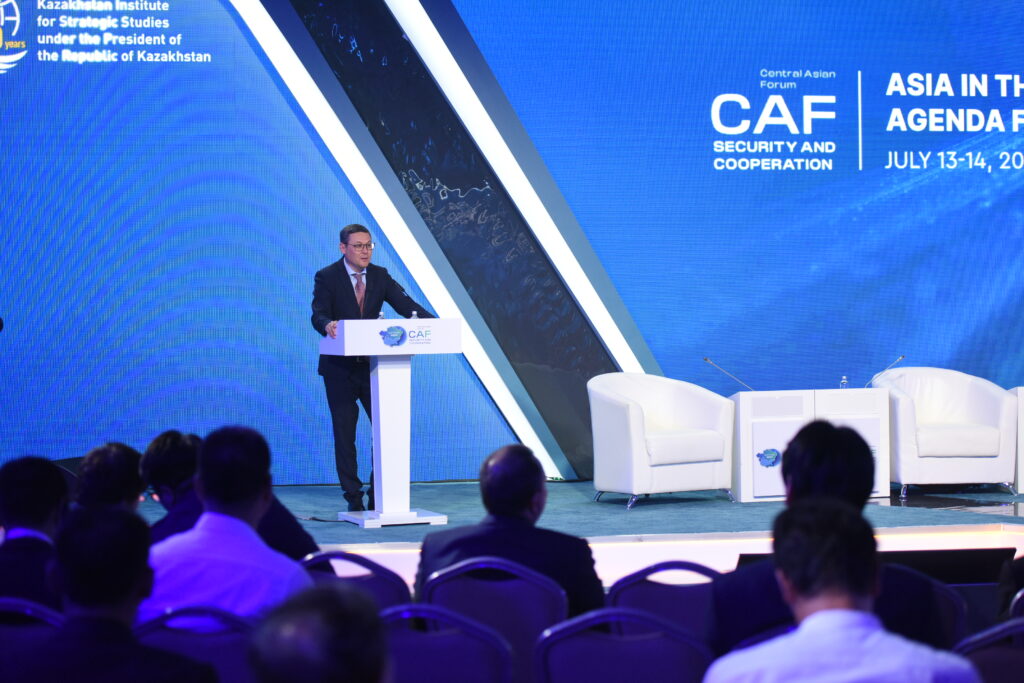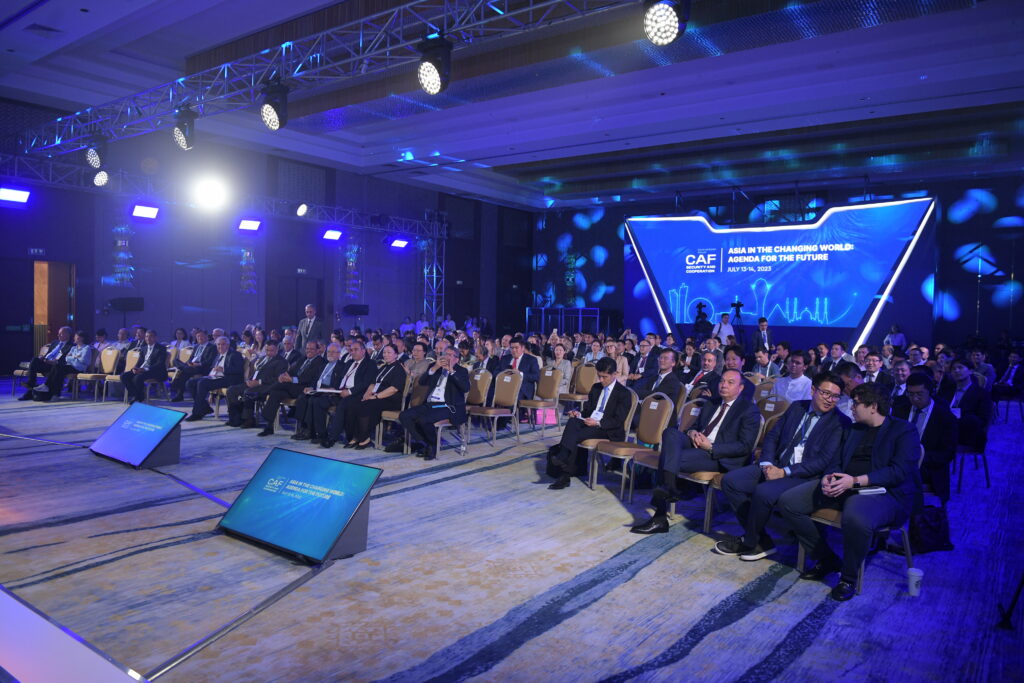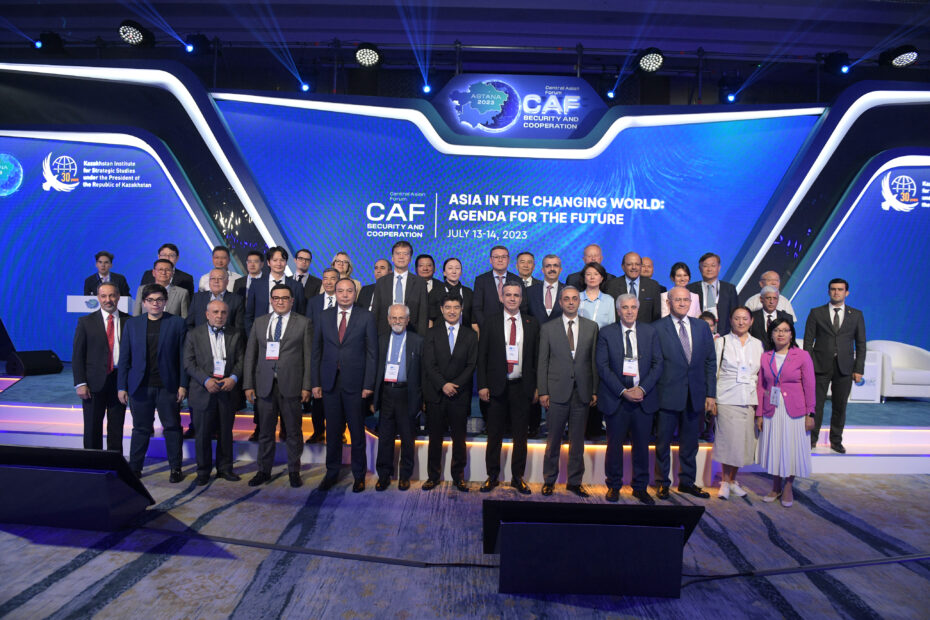Central Asian Security and Cooperation Forum “Asia in the Changing World: Agenda for the Future” concluded its work. Yerkin Tukumov, Director of the Kazakhstan Institute for Strategic Studies under the President of the Republic of Kazakhstan, announced the results of two days of rich discussions.
According to the director, the forum achieved its goals of promoting regional cooperation through the exchange of ideas and the joint search for new solutions to the most pressing security issues in Asia. The forum brought together leading experts from research centers, politicians and diplomats from 25 countries and a number of reputable international organizations. Fruitful intellectual discussions were held to review current geopolitical trends, identify the contours of emerging risks, challenges and threats, and prospects for opportunities.
Experts noted the growing turbulence in the international arena. Against this background, Asia is on the rise and the role of leading Asian countries in the global economy is strengthening. As the world experience shows, successful development of the state is impossible without stability, unity of society and modernization of public administration. The political and economic reforms carried out by President Kassym-Jomart Tokayev, which contribute to the progressive development of Kazakhstan and in general serve as an important basis for social progress and strengthening the role and authority of Kazakhstan in Central Asia and in the international arena, are aimed at this.

“We clearly understand that the transformation and democratization of our society, as well as the competitiveness and sustainability of the economy, are vital to our success and the success of Central Asia,” added the KazISS Director.
Special attention during the forum was paid to the role of small and medium-sized states, their interaction with global players and each other. Yerkin Tukumov notes that analytical and expert communities should play an important role at the present stage in strengthening relations between the countries of the region: “There are three key perspectives for medium-sized states in Asia. The first is geo-regionalism, when geographical location becomes an advantage. The second is plurality of culture and identity, where there is a common history, culture and values with diverse civilizational vectors. And the third is the existence of ‘non-global’ but feasible goals aimed at interaction with neighboring states.”
The Director noted that great importance is now being attached to the effectiveness of the Central Asia+ formats. “We believe that the notion of ‘big game’ should be a thing of the past, replaced by the concept of ‘big benefit’ to enhance future mutually beneficial cooperation. This can be realized if we follow the vision that “the success of Central Asia as a region is the success of each individual country”,” said KazISS Director.
Y. Tukumov cited Kazakhstan’s relations with neighboring countries and countries across the Caspian Sea for intensive work on the Middle Corridor as one example of regional cooperation. Interaction between Asia’s macro-regions is particularly relevant to the issue of building a new architecture of ties against the backdrop of the current geopolitical situation.
“Today, it is necessary to stimulate investment to develop the Middle Corridor and achieve benefits for the countries and regions through which it passes. It is especially important to increase cooperation between regions to develop a “school of strategic thought.” The challenge of establishing an international mechanism for sharing technology and ideas is vital to the sustainability of the corridor. The growing population is causing water problems, which means that states must move to more rational and efficient water use practices,” Tukumov said, adding that as a way to ensure the realization of this idea, Kazakhstan proposes the creation of an International Water and Energy Consortium in Central Asia to address this pressing issue.
“Expanding the range and depth of confidence-building measures between the countries should be a priority for further development of foreign policy. The CICA catalog of measures on new challenges and threats can serve as a good basis. Therefore, the 28 participating States can fill the confidence-building measures with concrete actions,” added the Director of KazISS.
Y. Tukumov emphasized the role of the SCO, the OTS, BRICS and the EAEU. These organizations, according to him, are capable of creating conditions for Central Asia to become a new center of attraction and transformation. Harmonization of the work of these international organizations can have a significant impact on building a sustainable economic partnership across the Eurasian continent. This can provide a roadmap for expanding and strengthening trade relations, promoting closer cooperation in energy and the environment, deepening digital cooperation, and cultural and humanitarian ties.



